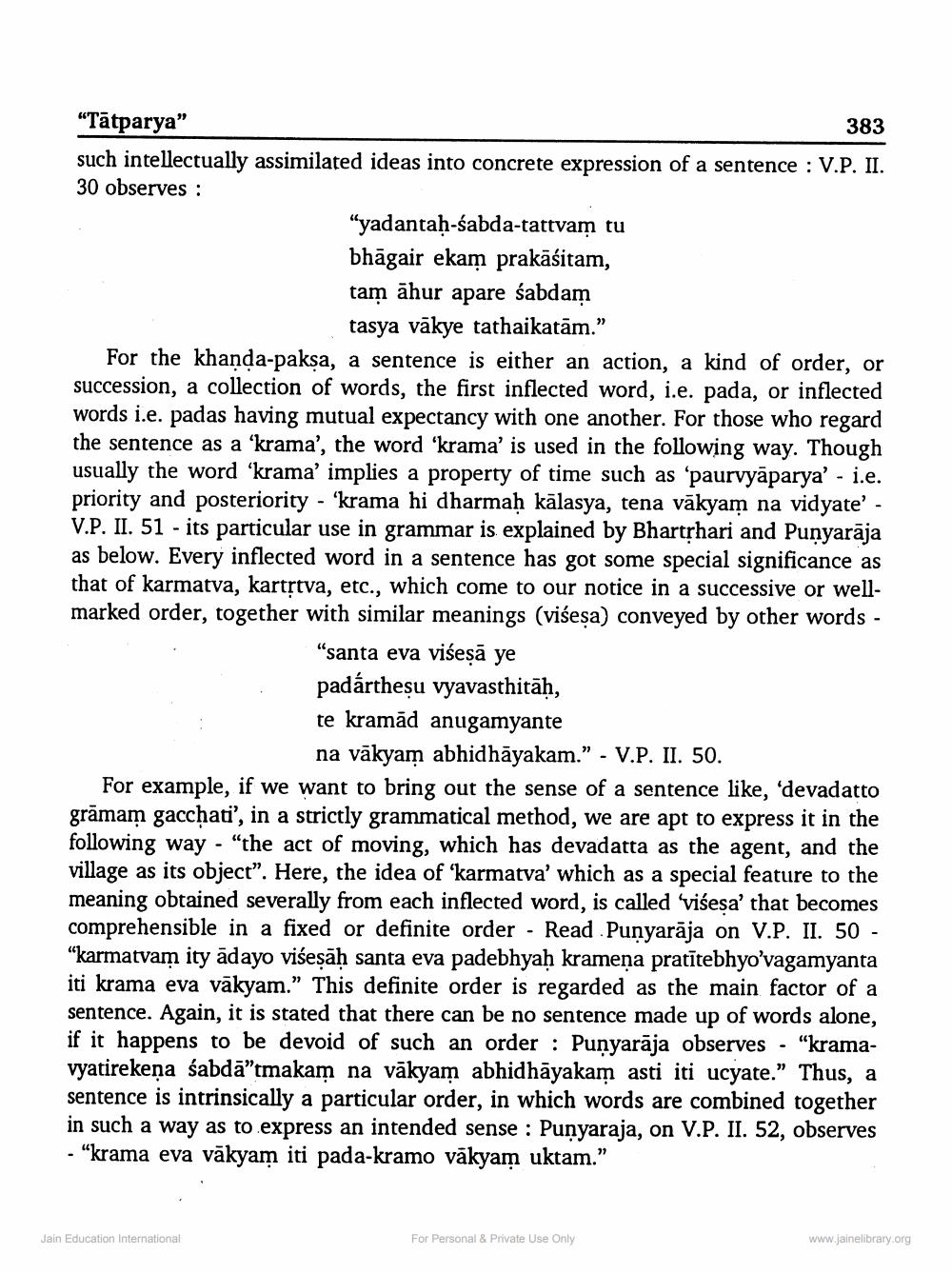________________
"Tātparya"
383 such intellectually assimilated ideas into concrete expression of a sentence : V.P. II. 30 observes :
“yadantah-sabda-tattvam tu bhāgair ekam prakāśitam, tam āhur apare sabdam
tasya vākye tathaikatām.” For the khanda-paksa, a sentence is either an action, a kind of order, or succession, a collection of words, the first inflected word, i.e. pada, or inflected words i.e. padas having mutual expectancy with one another. For those who regard the sentence as a 'krama', the word 'krama' is used in the following way. Though usually the word ‘krama' implies a property of time such as 'paurvyāparya' - i.e. priority and posteriority - ‘krama hi dharmaḥ kālasya, tena vākyam na vidyate' - V.P. II. 51 - its particular use in grammar is explained by Bhartshari and Punyarāja as below. Every inflected word in a sentence has got some special significance as that of karmatva, kartstva, etc., which come to our notice in a successive or wellmarked order, together with similar meanings (višesa) conveyed by other words -
"santa eva višeşā ye padártheșu vyavasthitā), te kramād anugamyante
na vākyam abhidhāyakam." - V.P. II. 50. For example, if we want to bring out the sense of a sentence like, 'devadatto grāmam gacchati', in a strictly grammatical method, we are apt to express it in the following way - "the act of moving, which has devadatta as the agent, and the village as its object”. Here, the idea of 'karmatva' which as a special feature to the meaning obtained severally from each inflected word, is called 'viśesa' that becomes comprehensible in a fixed or definite order - Read .Punyarāja on V.P. II. 50 - "karmatvam ity ādayo viśesāh santa eva padebhyaḥ kramena pratītebhyo'vagamyanta iti krama eva vākyam.” This definite order is regarded as the main factor of a sentence. Again, it is stated that there can be no sentence made up of words alone, if it happens to be devoid of such an order : Punyarāja observes - "kramavyatirekeņa śabdā”tmakam na vākyam abhidhāyakam asti iti ucyate.” Thus, a sentence is intrinsically a particular order, in which words are combined together in such a way as to express an intended sense : Punyaraja, on V.P. II. 52, observes - "krama eva vākyam iti pada-kramo vākyam uktam."
Jain Education International
For Personal & Private Use Only
www.jainelibrary.org




